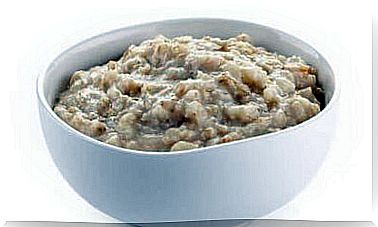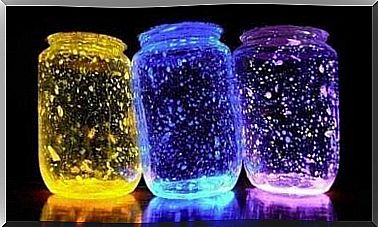Kombucha Tea: Nutritional Values and Risks
The microorganisms that have the task of fermenting the sweetened tea from which this drink is obtained are called kombucha mushrooms. Kombucha tea has numerous properties, but it is good to know that it is not without side effects.
Several microbes participate in the initial phase of the fermentation process, but as the days go by, only those that make up the characteristic gelatinous body of kombucha survive. The rest die due to the high degree of acidity and antibiotic substances that are produced.
The flavor of kombucha tea depends on the fermentation time; more delicate and sweet at the beginning, it gradually acquires a more intense and acid flavor.
Nutritional values of kombucha tea
Among the nutritional characteristics of kombucha tea we mention:
- High in vitamins and important minerals, such as vitamins B and C, zinc, copper and manganese.
- Variable amounts of antioxidants that come from the black tea from which kombucha is made. Their presence depends on the fermentation time, the higher the acidity, the less oxidants it contains.
- High quantity of microorganisms with a probiotic effect.
Benefits of kombucha tea
The lack of studies on this drink does not allow us to affirm that the benefits attributed to it by tradition are true. Nonetheless, the antioxidants and microorganisms present are linked to improved digestion.
It would also have positive effects on cardiovascular and hepatic health, but also on stress. According to a study published in the journal Critical Reviews in Eukaryotic Gene Expression, the antioxidants in tea are able to prevent some cancers.
It should be remembered that this drink is obtained from green or black tea. It therefore offers the same benefits as these plants:
- Improve concentration.
- It has a diuretic and purifying effect.
- It has astringent properties.
Kombucha tea, in particular, acts positively on the gastrointestinal tract thanks to the presence of probiotics. It has been shown that the microorganisms that come from fermented products are able to prevent and treat inflammatory intestinal diseases.
Side effects
Despite the various benefits offered by this drink, its consumption is not entirely without risks. Here’s what they are.
Contamination risk
The greatest risks of consuming kombucha tea are contamination with other microorganisms if it is not prepared according to specific hygiene measures.
During the fermentation process, Kombcha tea can be exposed to numerous contaminations by harmful bacteria and yeasts. If it does not ferment long enough, the drink does not reach the degree of acidity and alcohol required to eliminate these microorganisms .
The presence of Aspergillus mold is often detected , capable of generating hepatotoxic substances; to this are added the bacteria of the genus Helicobacter pylori or Salmonella . The drink is not recommended for those suffering from intestinal or liver diseases.
It is also not recommended for use by immunosuppressed people or people with immune system deficiencies. Pregnant or breastfeeding women, children under five years of age, patients with HIV or any other infection should avoid drinking Kombucha.
Excessive consumption of Kombucha tea
Even those who do not belong to any of the risk groups should consume this drink in moderation. Excessive consumption can actually cause digestive upset, according to a study published in the Journal of General Internal Medicine .
It should also be noted that it is a drink with a high alcohol and sugar content ; therefore it is necessary to evaluate the diet as a whole to be sure not to exceed the recommended limits for these two substances.
Industrial Kombucha tea
The industrially processed Kombucha tea offers guarantees regarding correct sterilization. However, it loses its probiotic effect, becoming a drink of little nutritional interest.
A potentially healthy food
In summary, we can consider this drink healthy if you don’t overdo it. However, it does not guarantee short or long term benefits beyond those offered by the classic tea. There are those who argue, therefore, that it is better to drink tea, as it is free of alcohol and microorganisms that could trigger intolerances.









